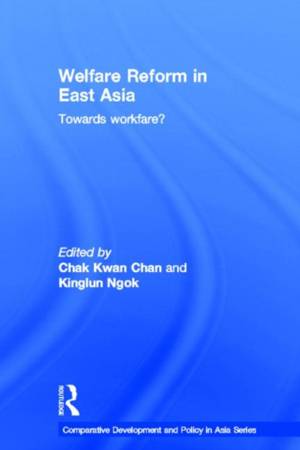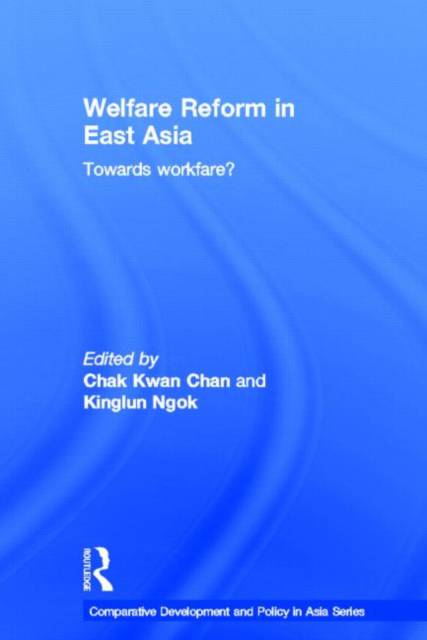
- Afhalen na 1 uur in een winkel met voorraad
- Gratis thuislevering in België vanaf € 30
- Ruim aanbod met 7 miljoen producten
- Afhalen na 1 uur in een winkel met voorraad
- Gratis thuislevering in België vanaf € 30
- Ruim aanbod met 7 miljoen producten
Welfare Reform in East Asia
Towards Workfare
Omschrijving
In many Western countries, social welfare payments are increasingly being made conditional on recipients doing voluntary work or attending job training courses, a system known as "welfare-to-work" or "workfare". Although social welfare in Asia is very different to the West, with much smaller social welfare budgets, a strong self-reliance and a much higher dependency on family networks to provide support, the workfare approach is also being adopted in many Asian countries. This is the first book to provide a comprehensive overview of how welfare reform around work is implemented in leading East Asian.
Based on the experiences of seven East Asian economies - including China, Japan, South Korea, Taiwan, Singapore, Hong Kong and Macau - this book critically analyses current trends; the social, economic and political factors which lead to the implementation of workfare; compares the similarities and differences of workfare in the different polities and assesses their effectiveness.
Specificaties
Betrokkenen
- Uitgeverij:
Inhoud
- Aantal bladzijden:
- 178
- Taal:
- Engels
- Reeks:
Eigenschappen
- Productcode (EAN):
- 9780415590266
- Verschijningsdatum:
- 2/09/2011
- Uitvoering:
- Hardcover
- Formaat:
- Genaaid
- Afmetingen:
- 156 mm x 234 mm
- Gewicht:
- 449 g

Alleen bij Standaard Boekhandel
Beoordelingen
We publiceren alleen reviews die voldoen aan de voorwaarden voor reviews. Bekijk onze voorwaarden voor reviews.










